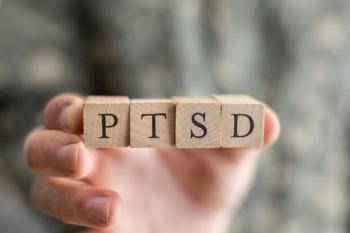
New Yale-Led Study Reveals Why Younger Veterans Face Higher PTSD Risk
Key Takeaways
- Younger veterans face a threefold higher PTSD risk than older veterans, mainly due to psychosocial challenges.
- Psychosocial factors, including strained relationships and loneliness, account for 90% of the age-related PTSD risk difference.
Younger veterans face significantly higher PTSD rates due to social challenges.
Younger US military veterans are three times more likely to experience posttraumatic stress disorder (PTSD) than their older counterparts, largely due to greater psychological and social challenges, according to a new study led by researchers at Yale School of Medicine and the National Center for PTSD.
Published online September 17 in the Journal of Clinical Psychiatry, the study analyzed data from a nationally representative sample of more than 4,000 U.S. veterans. Researchers found that psychosocial factors—including strained relationships, loneliness, childhood trauma, and unhealthy coping mechanisms such as substance use and self-blame—accounted for 90% of the age-related difference in PTSD risk.
The study was led by Jordan Hathorn, a former US Air Force special operations combat controller and current physician associate student at Yale School of Medicine. Motivated by personal experiences serving alongside fellow service members who endured severe psychological trauma, Hathorn conducted the research as part of his thesis project.
“I served alongside individuals who devoted every waking moment to fortifying themselves—physically, emotionally, and mentally—for the hardships and uncertainties of warfare. Yet, despite those intentional callouses, it was the unintended ones they could not prepare for,” Hathorn says. “This study was my attempt to contribute, in some small way, to understanding the distress that veterans face and to explore why younger veterans bear such a heavy burden.”
The analysis revealed a PTSD prevalence of 14.7% among veterans aged 22 to 49, compared to 4.9% in those 50 and older. Psychosocial factors—particularly interpersonal difficulties and loneliness—accounted for nearly two-thirds of this difference.
“These findings highlight the critical importance of social connection,” Hathorn says. “In the military, our bonds often run incredibly deep, forged through unique shared experiences. Upon separation, that fabric is tested—when the very people you once spent nearly every day with are no longer beside you. We train for every aspect of warfighting, but rarely for what comes after. Rebuilding trust, reconnecting with others, and cultivating healthy coping skills must be central to the transition back to civilian life.”
Senior author Robert Pietrzak, PhD, MPH, director of the Translational Psychiatric Epidemiology Laboratory at the VA National Center for PTSD and professor of psychiatry and public health at Yale, emphasized the clinical significance.
“These findings underscore the urgent need to address psychosocial reintegration challenges among younger veterans,” says Pietrzak, who also served as Hathorn’s thesis advisor. “Interventions that foster interpersonal connection and build adaptive coping strategies may be especially beneficial for this population.”
The study highlights the value of programs that strengthen social bonds and resilience in veterans. Initiatives such as the VA’s Compassionate Contact Corps, which pairs veterans with trained volunteers for regular supportive interactions, can help mitigate loneliness and foster belonging. Group-based peer support programs and evidence-based therapies, such as cognitive behavioral therapy and acceptance and commitment therapy, may further alleviate PTSD symptoms by enhancing coping skills and improving interpersonal functioning.
Hathorn hopes the findings will guide future prevention and intervention efforts. “Veterans are not defined by their trauma—they’re shaped by it,” he says. “Many are ready to heal, but they need the right support. By understanding their struggles and responding with compassion, we can help them thrive.”
Co-authors of the study included Ian C. Fischer, PhD, postdoctoral fellow at the National Center for PTSD; and Peter J. Na, MD, MPH, psychiatrist at VA Connecticut Healthcare System and assistant professor of psychiatry at Yale School of Medicine.
Newsletter
Receive trusted psychiatric news, expert analysis, and clinical insights — subscribe today to support your practice and your patients.







